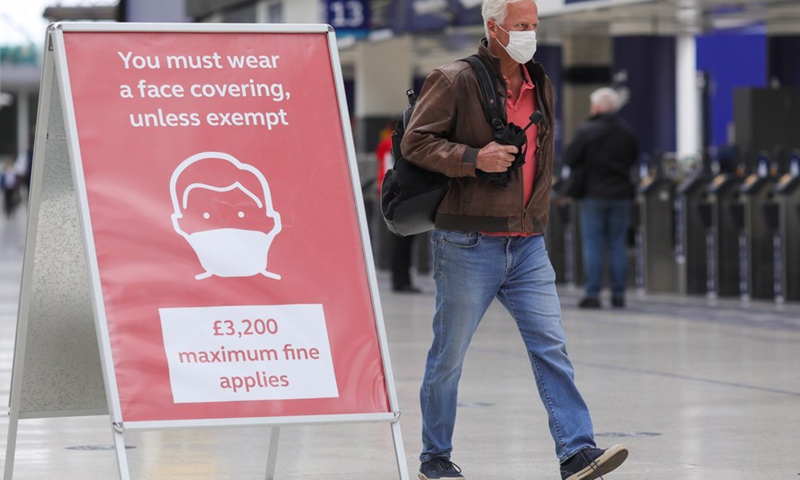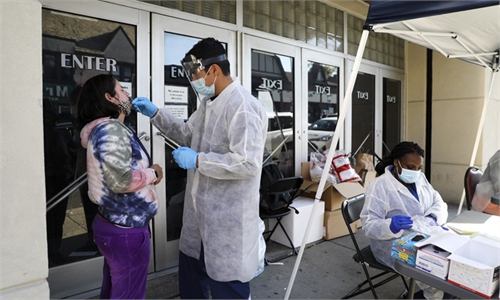Antibodies against the novel coronavirus declined rapidly in the British population during the summer, a study found on Tuesday, suggesting protection after infection may not be long lasting and raising the prospect of waning immunity in the community.

Their study found that antibody prevalence fell from 6 percent of the population around the end of June to just 4.4 percent in September. That raises the prospect of decreasing population immunity ahead of a second wave of infections that has forced local lockdowns and restrictions in recent weeks.
Although immunity to the novel coronavirus is a complex and murky area, and may be assisted by T cells, as well as B cells that can stimulate the quick production of antibodies following re-exposure to the virus, the researchers said the experience of other coronaviruses suggested immunity might not be enduring.
"We can see the antibodies and we can see them declining and we know that antibodies on their own are quite protective," Wendy Barclay, head of the Department of Infectious Disease at Imperial College London, told reporters.
"On the balance of evidence I would say, with what we know for other coronaviruses, it would look as if immunity declines away at the same rate as antibodies decline away, and that this is an indication of waning immunity at the population level."
Those whose COVID-19 was confirmed with a gold standard PCR test had a less pronounced decline in antibodies, compared to people who had been asymptomatic and unaware of their original infection.

A man walks past a sign warning of fines for not wearing a face covering at Waterloo Station in London, Britain, on September 23. Photo: Xinhua
Scientists at Imperial College London have tracked antibody levels in the British population following the first wave of COVID-19 infections in March and April.Their study found that antibody prevalence fell from 6 percent of the population around the end of June to just 4.4 percent in September. That raises the prospect of decreasing population immunity ahead of a second wave of infections that has forced local lockdowns and restrictions in recent weeks.
Although immunity to the novel coronavirus is a complex and murky area, and may be assisted by T cells, as well as B cells that can stimulate the quick production of antibodies following re-exposure to the virus, the researchers said the experience of other coronaviruses suggested immunity might not be enduring.
"We can see the antibodies and we can see them declining and we know that antibodies on their own are quite protective," Wendy Barclay, head of the Department of Infectious Disease at Imperial College London, told reporters.
"On the balance of evidence I would say, with what we know for other coronaviruses, it would look as if immunity declines away at the same rate as antibodies decline away, and that this is an indication of waning immunity at the population level."
Those whose COVID-19 was confirmed with a gold standard PCR test had a less pronounced decline in antibodies, compared to people who had been asymptomatic and unaware of their original infection.



